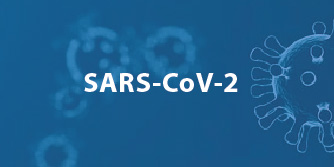Five-year programme of dentistry
Learning to be a dentist involves the most expensive courses of study for any degree, so it is essential that those thinking of dentistry as a career are absolutely sure that this is what they want to do with their working lives, before taking the first step and applying to enter a Faculty of Dentistry.
The English programme of dentistry consists of fifth successive academic years of dental, preclinical and clinical studies and is adapted to the common European programme, in keeping with the European admission standards for dental education.
The academic year formally starts on the 1 st of October and is divided into two five-month terms (semesters), including examination sessions. The student must successfully complete all of the course work of one academic year, before being approved for promotion to the next year.
Part I of the study, the preclinical (or theoretical) two years at the Dental School, is devoted to the following subjects: chemistry, biophysics, biology, anatomy, histology, embryology, cytophysiology, biochemistry, computing techniques, physiology, Latin language, physical education, first aid and resuscitation and facultative courses. Preclinical dental courses include: anatomy of teeth, physiology of masticatory systems, ergonomics in dentistry, dental materials, preventive dentistry, preclinical conservative dentistry and preclinical endodontics. Foreign students must take a course in the Polish language during these two years in order to be able to communicate with the patients from the third year onwards.
Part II of the study, the clinical three years, starts in the third year with pathomorphology, pathophysiology, pharmacology, microbiology, immunology.
The whole medical spectrum of clinical sciences will be covered by the end of the fifth year, which includes: internal medicine, generał surgery, paediatrics, physiology of pregnancy, neurology, infectious diseases, emergency and disaster medicine, dermatology, psychiatry, ophthalmology, radiology, otorhinolaryngology, forensic medicine, management and economics in public health , anaesthesiology, medical ethics and clinical oncology.
Clinical dental courses include: conservative dentistry (six semesters), prosthetic dentistry (six semesters), oral surgery (four semesters), orthodontics (four semesters), paedodontic dentistry (three semesters), periodontology (two semesters), dental radiology, clinical radiology, disfunction of the masticatory system, maxillo-facial surgery, oral pathology and facultative subjects. After successfully completing all work required during these fifth years, and after having passed all the prescribed examinations, the student will receive a title "lekarz dentysta" (equivalent to "doctor of dental medicine" - DMD).
Students will be required to attend the lectures, seminars, laboratories, clinical demonstrations, rounds and other activities prescribed in the Curriculum, including clinical training with night and weekend attendance.
A four-week full-time ambulatory training is obligatory during the summer vacation July-September, starting after the first year of studies and following three years.


